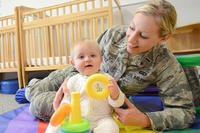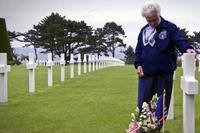Effective Dec.1, 2008, the Department of Veterans Affairs (VA) increased Dependency and Indemnity Compensation, and on Oct.1, 2008, increased Dependent Education Assistance.
Dependency and Indemnity Compensation (DIC) may be authorized for survivors of military personnel who die in the line of duty while on active duty or active duty for training. Compensation may also be authorized when death occurs following time in the service if death is due to a service-connection.
An unmarried surviving spouse under the age of 57, currently receiving DIC will see an increase from $1,091 per month to $1,154.
In addition, to spouse payments, if there are any surviving children under 18, each child would be eligible for $286 per month - up from $271 monthly. Payments may be made to older children provided they remain unmarried, are attending an educational program approved by the VA and again subject to age restrictions, generally between ages 18 and 23. This Supplementary DIC has risen to $243 per month.
Benefit | 2008 | Effective 12/08 |
DIC Spouse | $1,091.00 | $1,054.00 |
DIC Child | $271.00 | $286.00 |
No Spouse DIC 1 Child | $462.00 | $488.00 |
No Spouse DIC 2 Children | $663.00 | $701.00 |
No Spouse DIC 3 Children | $865.00 | $915.00 |
No Spouse DIC over 3 Children add: | $165.00 | $174.00 |
Disabled Child | $462.00 | $488.00 |
Supplementary DIC | $230.00 | $243.00 |
Dependent Education Assistance | $881.00 | $ 915.00 |
Dependency Education Assistance (DEA) increased from $881 to $915. The benefit is payable to a surviving spouse as well as surviving children. Surviving spouses have 10 years, (20 years if their spouse died on active duty) from the date of death of the service member to utilize DEA.
Surviving children must generally be between the ages of 18 and 26; extensions can be granted for special circumstances. Full-time students can receive payments for up to 45 months. Be aware: Supplemental DIC and DEA will not be paid simultaneously.
Note: At the time of this article, the $250 additional amount paid to a surviving spouse, caring for children of the deceased servicemember for the first two years after the servicemember death has not increased.
Read more about surviving spouse and family education benefits












